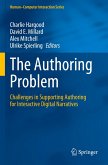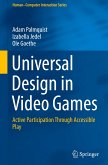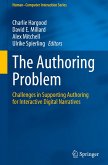Make-believe plays a far stronger role in both the design and use of interfaces, games and services than we have come to believe. This edited volume illustrates ways for grasping and utilising that connection to improve interaction, user experiences, and customer value.
Useful for designers, undergraduates and researchers alike, this new research provide tools for understanding and applying make-believe in various contexts, ranging from digital tools to physical services. It takes the reader through a world of imagination and intuition applied into efficient practice, with topics including the connection of human-computer interaction (HCI) to make-believe and backstories, the presence of imagination in gamification, gameworlds, virtual worlds and service design, and the believability of make-believe based designs in various contexts. Furthermore, it discusses the challenges inherent in applying make-believe as a basis for interaction design, as well as the enactive mechanismbehindit.
Whether used as a university textbook or simply used for design inspiration, Digital Make-Believe provides new and efficient insight into approaching interaction in the way in which actual users of devices, software and services can innately utilise it.
Useful for designers, undergraduates and researchers alike, this new research provide tools for understanding and applying make-believe in various contexts, ranging from digital tools to physical services. It takes the reader through a world of imagination and intuition applied into efficient practice, with topics including the connection of human-computer interaction (HCI) to make-believe and backstories, the presence of imagination in gamification, gameworlds, virtual worlds and service design, and the believability of make-believe based designs in various contexts. Furthermore, it discusses the challenges inherent in applying make-believe as a basis for interaction design, as well as the enactive mechanismbehindit.
Whether used as a university textbook or simply used for design inspiration, Digital Make-Believe provides new and efficient insight into approaching interaction in the way in which actual users of devices, software and services can innately utilise it.








